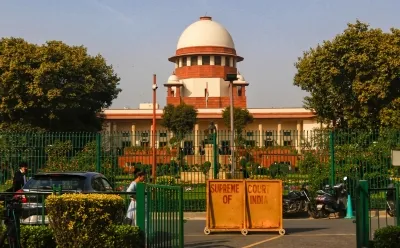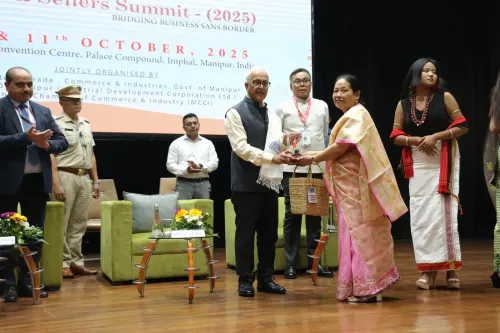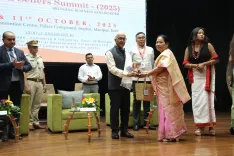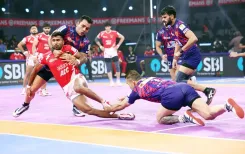Supreme Court to Address Challenge Against Delhi HC's Senior Advocate Designation Next Week

New Delhi, Dec 25 (NationPress) The Supreme Court is poised to examine a petition next week aimed at invalidating the comprehensive procedure that led to the designation of 70 attorneys as senior advocates by the Delhi High Court.
According to the causelist available on the apex court's site, a panel of Justices B.R. Gavai and K.V. Viswanathan will address the case on January 2, 2025.
The petition, submitted by advocate Mathew J. Nedumpara, a lawyer based in Mumbai, asserts that the entire process of designating lawyers as seniors is marred by favoritism, nepotism, patronage, and other unlawful and extraneous factors.
It further claims that the distinct dress code for designated senior advocates signifies an unjust classification, resembling near apartheid among attorneys, and is deemed unconstitutional and invalid for violating Articles 14, 19, and 21 of the Constitution of India.
Last October, the apex court had dismissed a petition that challenged the senior advocate designation process under the Advocates Act, 1961.
A panel of Justices S.K. Kaul (now retired) and Sudhanshu Dhulia remarked that the senior advocate designation system cannot be dismissed as untenable or classified as unreasonable under Article 14 of the Constitution.
"We dismiss the petition with no costs," the bench stated, noting that the plea was filed as a misadventure by the petitioner-in-person, advocate Nedumpara.
Nedumpara’s petition contended that the senior designation has fostered a class of advocates with exclusive rights, which has been perceived as reserved for the relatives of judges, senior advocates, politicians, ministers, and others.
The petition further argued that the designation of advocates as senior under Sections 16 and 23(5) of the Advocates Act, 1961, along with the Supreme Court Rules, 2013, creates a special class of advocates endowed with rights, privileges, and status not afforded to regular advocates, thus being unconstitutional for infringing upon the principle of equality under Article 14, the right to pursue any profession under Article 19, and the right to life under Article 21.









